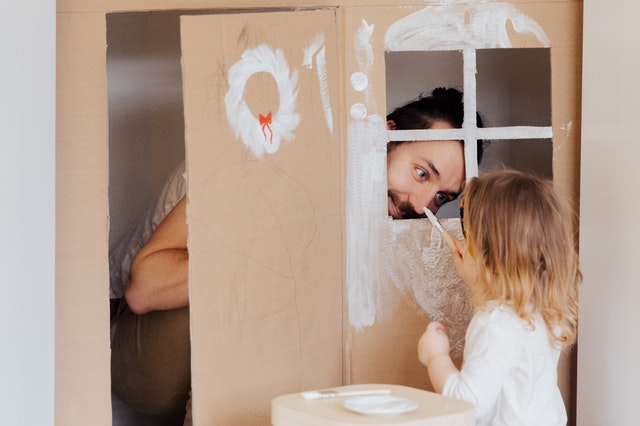
In these unprecedented times of the global coronavirus pandemic, it’s hard to know how to explain the situation to kids. Most of us adults are struggling just to keep up with the news, the latest health recommendations, and local or state restrictions on gatherings and businesses. Kids pick up on the tension and worries of the adults around them; they know something big is happening, and they probably have some big questions for you.
If you’re looking for some pointers on how to talk to kids about coronavirus, these tips from the CDC can help.
Talking to Children About the Coronavirus Pandemic
Keep calm and carry on (a conversation).
One of the best things you can do for your kids is to keep calm. Kids may not have the vocabulary or capacity to understand the finer points of the situation, but they pick up on a lot more than we typically give them credit for. If you’re saying reassuring words, but are giving off panic vibes, your kids can tell. The same goes for your conversations with other adults.
Foster an environment of open communication.
It’s important to let your kids know that you’re available to talk about the situation and that they can ask questions or express their concerns. Remember, these conversations don’t have to be a big, scary ordeal where everyone sits down for A Talk. Ask your kids how they’re feeling while out on a walk, or at the breakfast table. You don’t want to dwell on it, but checking in every so often can help, especially if your kids aren’t particularly forthcoming on their own.
Don’t allow information overload.
Today’s 24 hour news cycle means that anyone can stay glued to the TV, computer, or phone nonstop, reading endless articles and watching back-to-back doom-and-gloom news shows. That information overload isn’t good for you or your kids. Marinating in a constant stream of coronavirus information can lead to anxiety, and you’re probably already anxious enough. Instead, limit screen time, both in general, and in regard to COVID-19 coverage. Choose one or two news sources you trust and set a certain time of day to check them. Then, force yourself to do and think about other things.
It’s also important to teach kids that not everything they see on the internet is true. With so much misinformation (and in some cases, full-blown conspiracy theories) floating around, it’s important that kids have accurate information as appropriate for their age and maturity level. The CDC and WHO are the best places to get up to date and scientifically-accurate information about COVID-19.
Share useful information—and practice what you preach.
Last, but certainly not least, make sure your kids know and practice the current health best practices, from sneezing into elbows to washing hands for two renditions of the “Happy Birthday” song. Discuss the reasons for these precautions, and help them understand how important it is.
Have you checked out our coronavirus lockdown guide for parents and tips for avoiding cabin fever with kids? If not, we hope you’ll take a look!

Leave a Reply